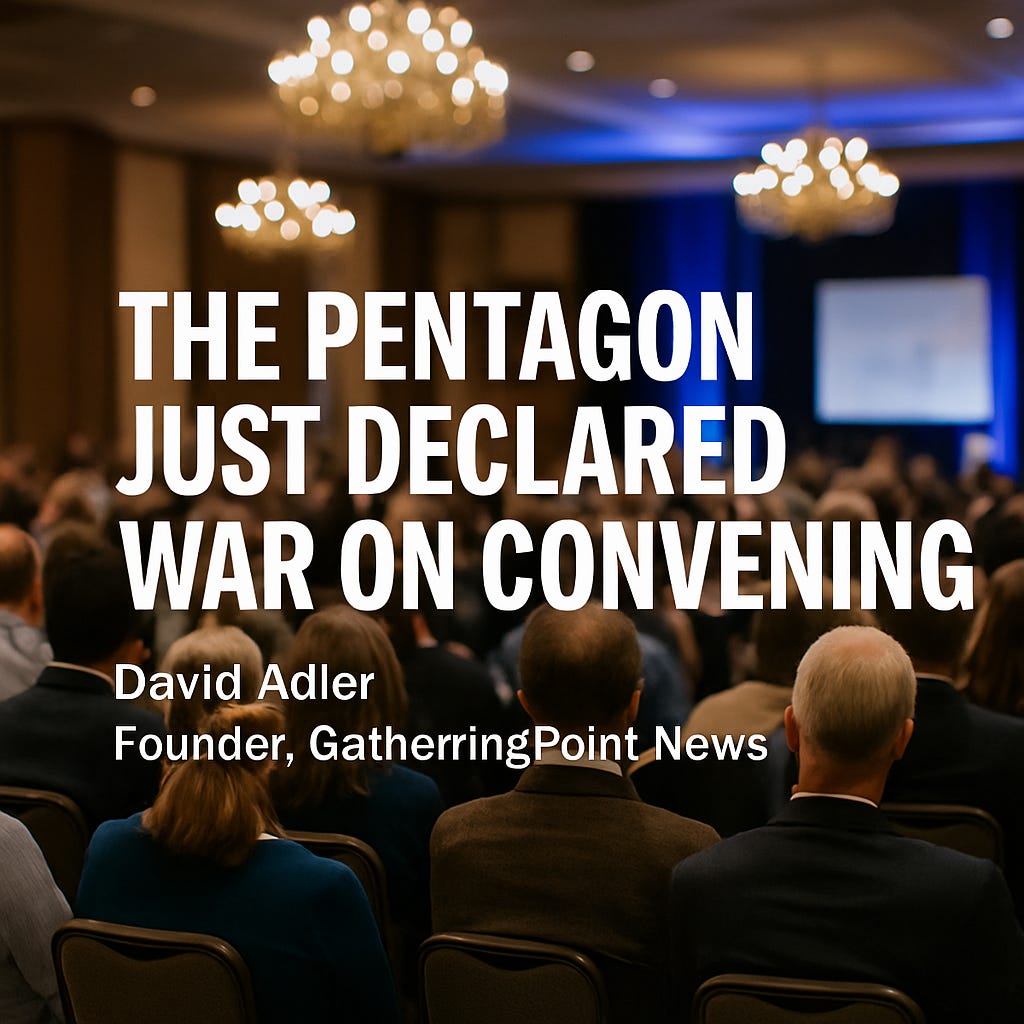The Pentagon Just Declared War on Convening
You can’t lead the world if you’re afraid of the room. And the events industry can’t stay silent while the rooms are being dismantled.
The Pentagon didn’t just cancel appearances. It’s canceling the very idea of open engagement.
Nancy A. Youssef’s recent piece in The Atlantic, titled “Pete Hegseth’s Pentagon Is Becoming a Bubble” (August 4, 2025), makes it official: under Defense Secretary Hegseth, the Pentagon is pulling senior military leaders from major strategic convenings like the …




